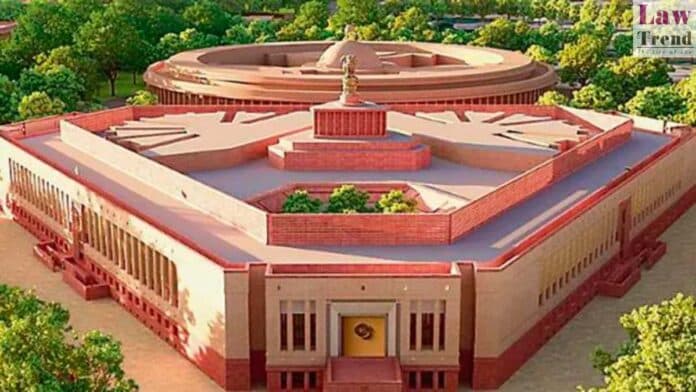The Union Government is reportedly planning to introduce bills in Parliament aimed at establishing a mechanism for the removal of the Prime Minister, Chief Ministers, and other ministers at the central and state levels if they are arrested in connection with serious criminal charges. This legislative move, if enacted, would represent a significant shift from the current legal framework, which primarily provides for the disqualification of legislators only upon conviction for certain offences. The proposal targets holders of executive office to enforce accountability and probity from the moment of arrest, rather than awaiting the conclusion of a lengthy judicial trial.
Background of the Proposed Legislation
The move comes against a long-standing public and judicial discourse on the issue of criminalization in politics. The existing legal framework, primarily governed by the Constitution of India and the Representation of the People Act, 1951, does not provide for the automatic disqualification or removal of a minister from their post merely upon arrest or the framing of charges.
Under Articles 75 and 164 of the Constitution, the Prime Minister and Chief Ministers are appointed by the President and Governors, respectively. Other ministers are appointed on the advice of the Prime Minister or the Chief Minister. Ministers hold office during the “pleasure” of the President or the Governor, which is conventionally exercised on the advice of the Prime Minister or Chief Minister. There is no explicit constitutional provision that mandates the removal of a minister following an arrest.
The primary law dealing with the disqualification of legislators is the Representation of the People Act, 1951. Section 8 of this Act disqualifies a person from being a Member of Parliament or a State Legislature upon conviction for certain specified offences. A landmark judgment by the Supreme Court in Lily Thomas v. Union of India (2013) struck down Section 8(4) of the Act, which had previously allowed convicted lawmakers to retain their seats for a three-month period while they filed an appeal. The Court’s ruling led to the immediate disqualification of legislators upon conviction.
However, the current proposal seeks to advance this timeline from the stage of conviction to the stage of arrest for “serious charges.”
Key Provisions of the Proposed Bills
While the exact text of the bills is yet to be made public, the core objective, as reported, is to create a legal provision for the removal of a member of the Council of Ministers (both Union and State), including the Prime Minister and Chief Ministers, from their executive office if they are taken into judicial or police custody following an arrest for a serious criminal offence.
The definition of “serious charges” will be a critical component of this legislation. It is anticipated that this would include offences that are heinous in nature, relate to corruption, national security, or carry a significant minimum sentence of imprisonment (e.g., seven years or more).
Legal and Constitutional Analysis
The introduction of such bills is expected to trigger a significant constitutional debate.
Arguments in Favour: Proponents of the move are likely to argue that it is a necessary step to uphold public trust and morality in governance. The argument is that an individual holding a high executive office, who is under arrest for a serious crime, loses the moral authority to govern. This measure would be presented as a crucial reform to cleanse politics and ensure that the executive is not run by individuals facing grave criminal allegations.
Potential Counter-Arguments and Constitutional Hurdles: Conversely, the proposal is likely to face challenges on several legal grounds:
- Presumption of Innocence: A cornerstone of criminal jurisprudence is that an individual is presumed innocent until proven guilty. Disqualification or removal from office based solely on an arrest could be seen as a violation of this fundamental principle, as an arrest is not a judicial determination of guilt.
- Potential for Misuse: Critics may argue that such a law could be weaponized by the ruling party to target political opponents. Investigating agencies could be used to arrest opposition ministers on fabricated or flimsy charges to engineer their removal from office, thereby destabilizing governments.
- Separation of Powers: The legislation might be challenged as an encroachment on the powers of the judiciary. By linking removal from office to an arrest—an executive action—it could be argued that the law pre-empts the judicial process of trial and conviction.
- Distinction between Legislator and Minister: The bills specifically target the holding of ministerial office. While a person may be disqualified as a legislator only upon conviction, this law would create a separate, more stringent standard for holding an executive post. The legal basis for this distinction will be a key point of debate.




